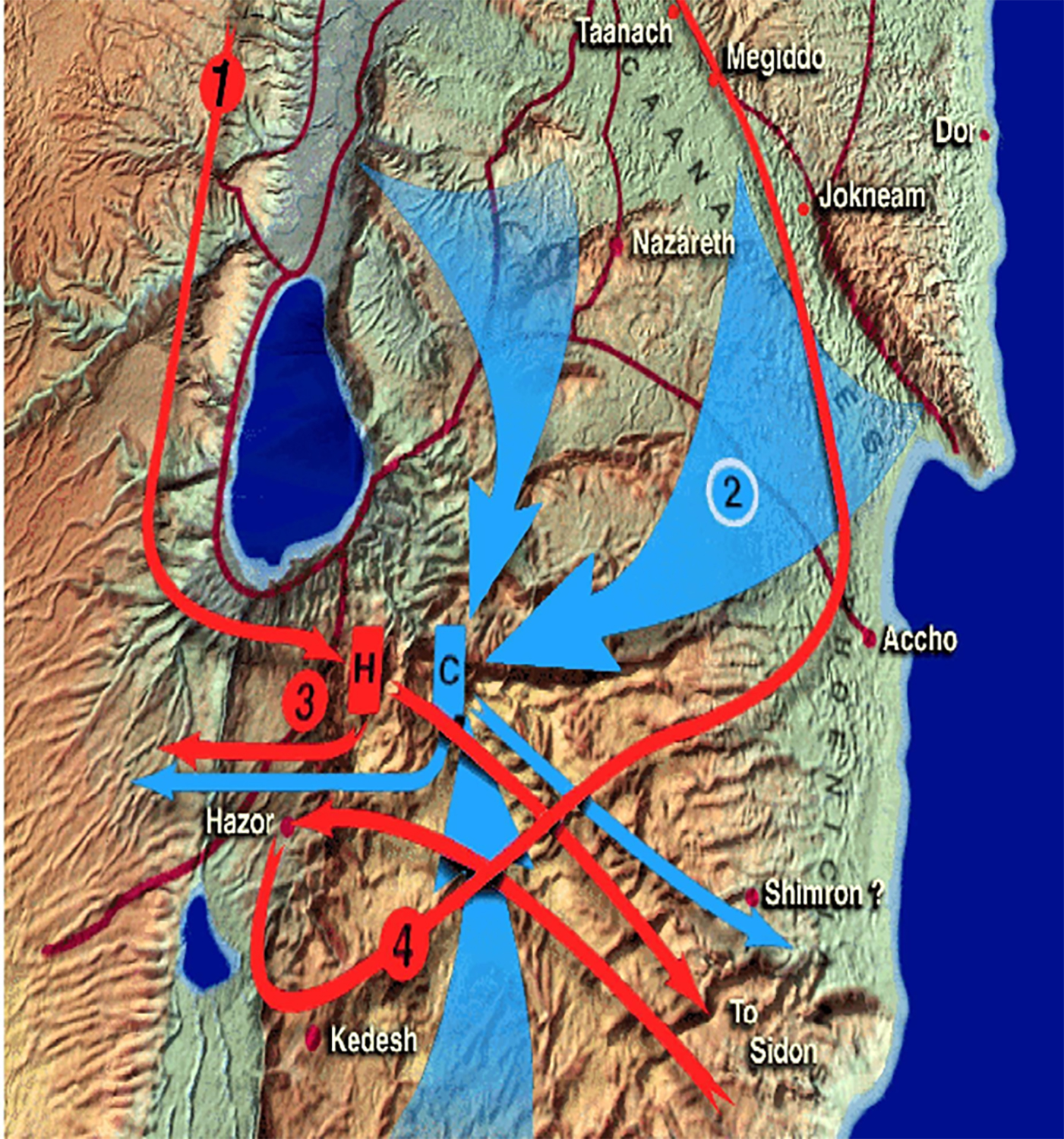And it came to pass, when Jabin king of Hazor had heard those things, that he sent to Jobab king of Madon, and to the king of Shimron, and to the king of Achshaph, (Joshua 11:1)
Jabin.
Meaning, probably, “he understands.” It may have been the common name of all the kings of Hazor, for the king of this city by whom the Israelites were afterward held in bondage for 20 years, and who was defeated by Deborah and Barak, was also known by this name (Judges 4:2-24) Jabin appears now as the head of the confederacy of the northern tribes.
Hazor.
Literally, “an enclosure.” It was a strongly fortified city southwest of the now drained Lake Huleh, identified today as the fortified enclosure 131 ft. (40 m.) high at Tell Waqqâs, 3.8 mi. (6.3 km.) from the south end of the former lake, which lay in one of the most pleasant valleys of Palestine. The open water was then about 2 mi. (3 km.) broad at its widest part, and mi. (5 km.) long. A great marsh of papyrus reed stretched for nearly 6 mi. (10 km.) north of the clear surface, from 1 to 3 mi. (1 1/2 to 5 km.) in breadth.
Jobab.
Meaning, possibly, “battle crier” or, perhaps, “crier” or “proclaimer.”
Israel’s Last Campign West of the Jordan

Madon.
Meaning “strife” or “contention,” or perhaps “extension” or “height.” Its location is unknown; it may have been west of the Sea of Galilee.
Shimron.
Literally, “a watch,” “a guard.” This was a Canaanite town situated somewhere in Galilee. Some identify it with Shimron-meron (ch. 12:20). The town was later given to Zebulun.
Achshaph.
Literally, “incantation.” It was one of the border cities of the territory later assigned to the tribe of Asher (ch. 19:25).